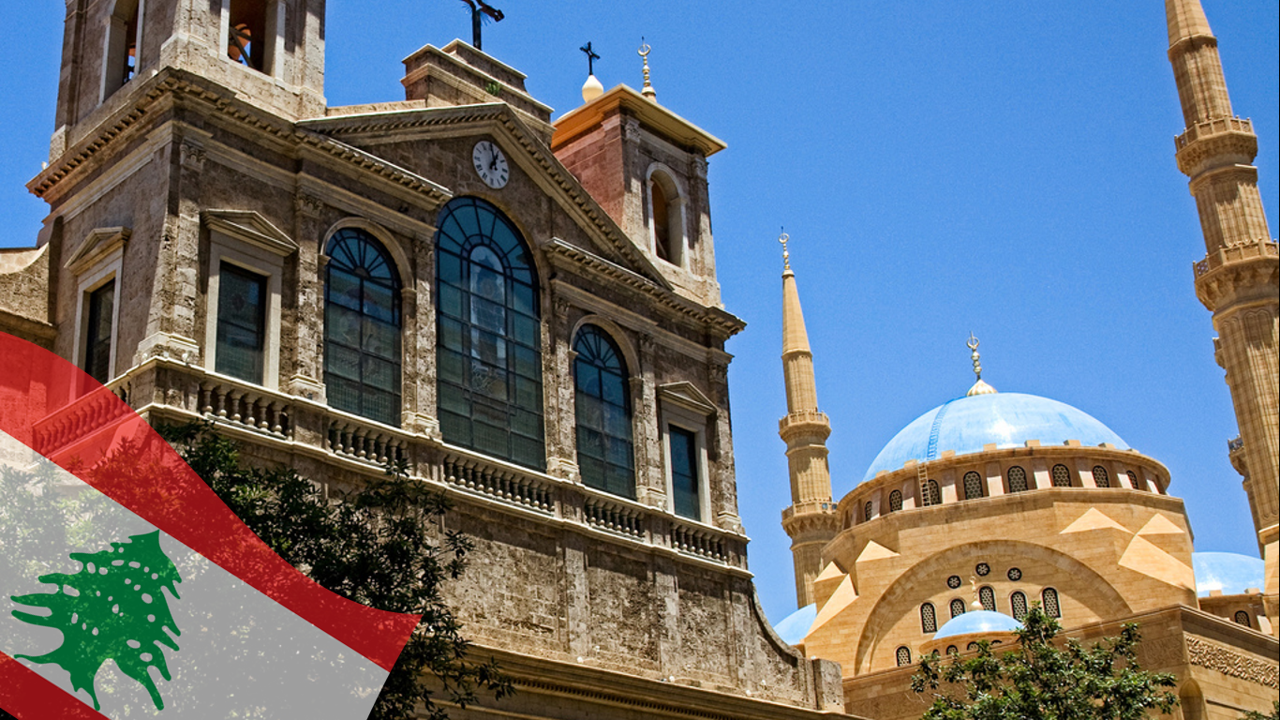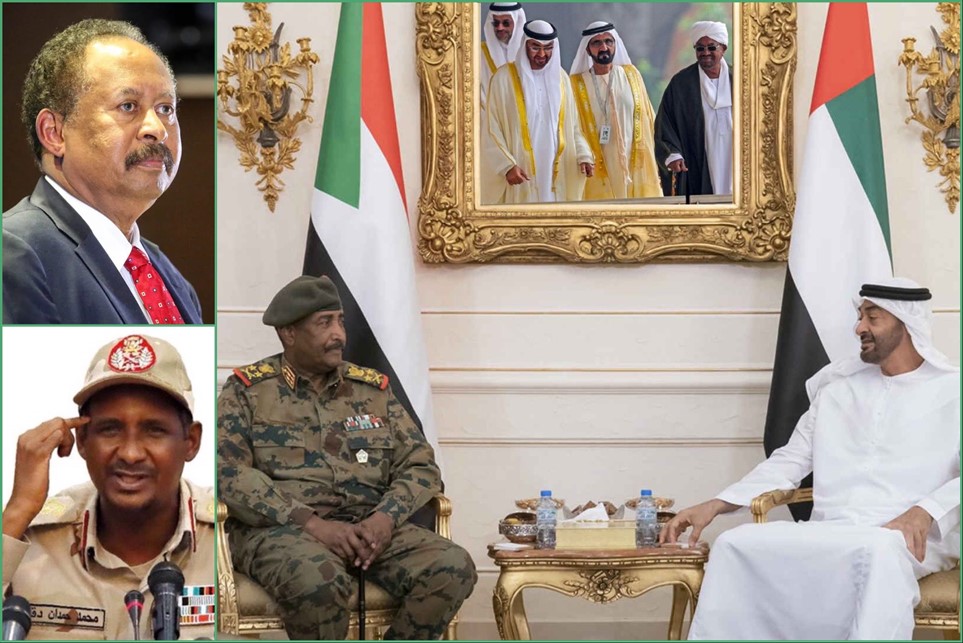Roughly two weeks has passed by since on Monday 25 October 2021 the Sudanese army carried out a textbook operation. A coup against the government in which the army is an integral part, arresting Prime Minister, most cabinet members and leading civilian personalities. That happened almost a month after a very similar, though foiled attempt. Only this time it succeeded. But did it really?
Roughly two weeks went by, and the outcome is still dubious at best. Since the coup the Prime Minister was released, but only back to his home surrounded by the military. Which was welcomed by the very same countries, most notably the US and Saudi Arabia, which were concerned about him. The army leadership have already expressed that soon a new Prime Minister will be appointed and started to refer to Prime Minister Ḥamdūk, as “resigned”, or “former”, while the man still refuses to step down and put forward demands to even negotiate with the army. The irony is that the army now staged a coup against a transitional government, which it helped to create after a similar military coup against the previous leadership in 2019, and to which it agreed to hand over power by the end of this year. A fact not likely to happen.
But amidst this typical third world confusion, which failed to gain particular interest from the international headlines there are many pressing questions. Why did it happen? Who has won? Has anyone won? What was it all about?
The confusion is still boiling in the streets in the Sudanese capital between groups of protesters and the army. But in the background there is much at stake, as now Sudan is part of many important games. And for many, who stood behind certain groups of the transitional government in the last two years it really matters which way Khartoum will go after this crucial debacle.
Coup upon coup
After months of escalating protests Sudanese President ‘Umar al-Bašīr, who was in power for three decades by then was overthrown by a military coup. A coup very similar to the one once al-Bašīr led in 1989, also based on the military. And just like him later on, the new system offered gradual change and largely built on civilian movements, though the core of the ruling elite was always the army.
It was rapidly agreed between the winning new sides, which were mostly all former protégées of the al-Bašīr era that a transitional period would come for two years, which would be ended by general elections. The government was formed by mostly technocrats, or formally sidelined politicians led by interim Prime Minister ‘Abd Allah Ḥamdūk, and it was understood that it is only a temporal setup, until a fully legitimate government takes over. A point Ḥamdūk was always keen on reminding everyone, not to take major decisions. The army, however, set up the Transitional Sovereignty Council (or Transitional Sovereign Council – TSC) to guarantee stability and “protect” the civilian government – in which technically had little role -, but it was also agreed that this council has the final word in all major decisions.
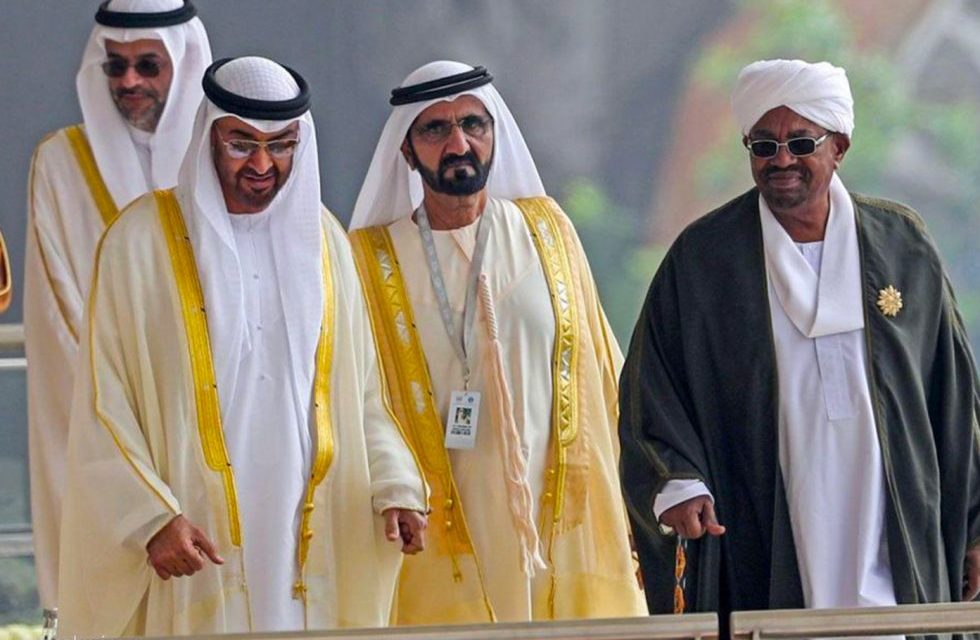
The idea behind this hybrid setup was that this practically limitless power sorts out the impending problems of the state, puts it on track, after which elections would be held and power completely handed over the the new civilian regime. And no doubt there were huge problems to be sorted out swiftly. Sudan was under tremendous international sanctions for decades, which by then crippled the economy. And Sudan proved much less fortunate to cope with such problems then Iran, Cuba, or even Venezuela. By 2019 the economy practically collapsed, and became immensely depended on the support of its friends in the Gulf, whom at that time were conducting a very adventurous policy with Trump. Inseparably from this matter, pressure was growing – before and after the 2019 coup – on Sudan to join its Gulf allies in a path, which eventually led to the normalization with Israel. A deal into which eventually Sudan was forced into with great reluctance under the transitional regime. There was also the problem of the war thorn region of Dārfūr and areas in the south, which were left paralyzed after practically civil war before. Dārfūr was a particularly advertised matter by Washington, thought the more pressing matter was the south and the relationship with South Sudan. These problems were met with decades of economic mismanagement, foreign investments, picking sides in the regional disputes and keeping a balance between the various civilian groups in the government and an army notoriously jealous not to release power. To make it worse, in every major decision the pressure by the foreign sides sponsoring the new regime, mostly the Emirates and Saudi Arabia was present. Pushing Khartoum to directions it was reluctant to take.
Despite the task being huge, the new system worked relatively well, regardless the contradictions after each major decision. The Juba Peace Agreement in 2020 put an end to decades of unsolved problems in the south draining much energy. It was a success. Joining the so called “Abraham Agreement”, the normalization with Israel was a particularly controversial decision, but was pushed through and did indeed promise economic support. Because in exchange the Trump administration released thus far frozen Sudanese assets and offered a financial support package of $700 million.
Cracks, however, also soon started to show. Both the economic transformation and the transition into an elected democracy proved much slower then anticipated. The promised economic relief both from Washington and the Gulf was slow to arrive, if at all. The massive floods in 2020 paralyzed much of the country without any tangible coordinated government relief. And in the Egyptian-Ethiopian debacle about a new massive dam on the Nile in Ethiopia, which is a crucial issue for Sudan as well, Khartoum was barely present in the scene. The truly problematic part of all was that at every major decision the government was having one policy, only to be crossed over, or simply disregarded by the military. This was very visible about the normalization process, in which the military was pushing for a settlement, while Ḥamdūk wanted to delay decision to after the elections, knowing well that no elected government would agree to it in Sudan. The same is true about the Ethiopian dam, where the government wanted to avoid confrontation at any cost, while the army was happy to join the warlike rhetoric by Egypt. It didn’t help either that personal distrust and rivalry was only growing between the Prime Minister Ḥamdūk, President of the TSC and the army, practical head of state General ‘Abd al-Fattāḥ al-Burhān and his deputy, the commander of the most capable battalions Muḥammad Daqalū – aka. Ḥamīdtī – and the forces behind them both internally and internationally. And that is how the country started to slowly sink back to the present series of coups.
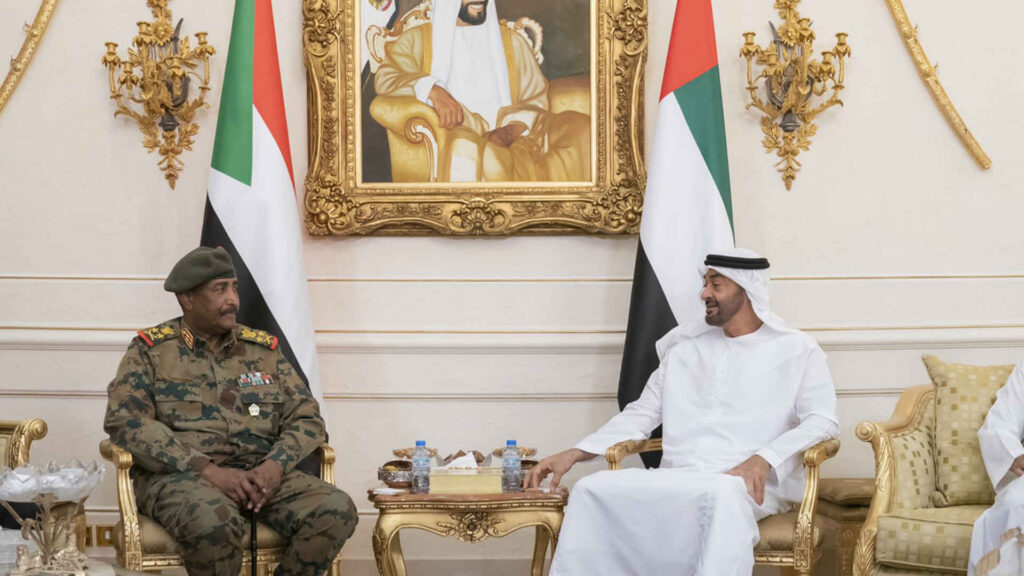
On 21 September 2021, almost hidden from the headlines a coup attempt started, mostly in the eastern part of Sudan. The attempt seemingly graining momentum at the beginning was soon foiled. It was uncovered later on that the part of the army supported by civilian forces loyal to the regime before 2019 was trying to bring back the old ways. Some 21 officers were detained immediately though the number later claimed to around 40. The coup was completely over in days, but it was a warning sign. And several details were alarming. During the coup, which theoretically, at least by what we seem to know today came from “outside” of the elite, the al-Burhān–Daqalū duo was suspiciously calm and it was the – mostly civilian – government, which rallied loyalist troops and blocked the coup. By that time reports subtly started to talk about elections not sooner than 2024, and power handover to the civilians in late 2021. Massive protests started after the coup, but not all pointing to the same direction.
Frustration with the current economic and living conditions were understandably high, so it is logical that many people lost patience with the new regime. However, while some were protesting against the overpower of the army demanding a civilian government, a new group the National Charter Forces organized protests in front of the Republican Palace demanding a military government and the dissolution of the present one. This turned out to be an extension of the military. This was the first truly warning sign that the army is preparing its own “home grown” civilians to share power with in case of an eventual other coup.
Many suspected that the September coup was largely staged. On the one hand it revealed the unreliable groups in the army, and also could have been a grand rehearsal before the real push. Which came two weeks ago.
The whole series of coups leading up to the last one is chaotic, but it is hardly surprising. In a country with so weak civilians institutions in much of country away from the big cities the most coherent force is the army. It has a tradition of military takeovers. And given such history, which is also a recurring theme in the whole region, the army is a significant part of the whole economic sector. So it is not easy to transform, nor to build up a ravaged economy without army support, or at least approval.
The last coup. Until now.
Barely a month went by and on 24 October late night the wheels were turning for yet another coup. By the early hours of the 25th the army was in control of the capital, main roads were blocked, internet and telecommunications were cut, and most government notables along with the Prime Minister were detained. Almost all prominent members of the government and the TSC who are not military members were taken to an unknown location. Textbook operation executed with proficiency. At least for the most part.
While most aims of the operation were met by the early hours of 25th, some like the media advisor of Ḥamdūk were still at large and alarming both the people and the international forums about what was going on. In result, protesters took the streets once again and blocked some of the main roads stopping the army movements. This in the later days led to violence, leaving a still uncertain about of people dead.
The international community was also not happy about the scene – or at least that it was still becoming a spectacle – and demanded the reinstitution of the civilian government. While the Emirates was particularly concerned for whatever reason, both Washington and Riyadh condemned the coup. Or at least that is the official image. And to give emphasis to these warning immediately on 25 October suspended the $700 million assistance package. To make it worse, the US, the UK and Germany drafted a resolution for the UN Human Rights council to demanded the return of the previous system.
Yet that was not the main concern for the al-Burhān, as clearly something went wrong in the plan. Now, how do we know that? Like any military operation, no coup starts without a careful planning with an end scenario. Which in this case should have been the announcement of a new government. Soon enough we should came to know who is the new civilian face of the government by the army’s liking, or otherwise al-Burhān, or some other general should have taken over Ḥamdūk’s duties. But what do we see instead?
Sporadic clashes and major protests even after two weeks in several Sudanese cities. News from the very beginning that the army is negotiating with Ḥamdūk. Even more, due to the mounting pressure within days Ḥamdūk could return to his home, though he is under strong military oversight, practically in house arrest. Though this does not stop him from even international contacts. Some sources claim the Prime Minister was pressured to support the coup, step down and thus make it legal; while others suggest that there are still ongoing negotiations with him about his return within a new power sharing framework. Whichever scenario is true, on 29 October Friday al-Burhān announced that the new government will be formed within a week. Yet still on 3 November – so more than a week after the coup – negotiations were still very active with Ḥamdūk. Probably due to his insistence for the release of all those detained as a prelude to any negotiations resulted in yet another breakdown. So on 4 November the army leadership expressed once again that the formation of the new government is “imminent”. Still, no result. Clearly, the plan – whatever that was – broke down at some point and the coup got stuck. There is not much space to retreat, but it is very hard to press on at this point. And the very fact that Ḥamdūk got back, thought severely surrounded and striped from exercising any power, only motivates the protests and his international supporters to block the coup, giving hope that there is still a way back. That is, given if Ḥamdūk has any real international supporters.
A stalemate on small and large
Looking at the situation we can clearly see that so far there is no winner, though theoretically both sides can still triumph over the other. If Ḥamdūk can reclaim his position he held before 24 October he can force a settlement for a complete power handover from the military. That would cripple the army’s position and might even give way for some substitutions in the officer corps. On the other hand the army is still largely at control, so it can still name a new government and push for a complete rule. For that it would still need a facade of the civilian government, but that can be formed by loyalists and than hope for some – even is tacit – international recognition.
Internally the no matter how much the army is in control, much of the society is against the military rule on the long run. Meaning for the situation to stabilize some force must be used. Which cannot be done, until sufficient international recognition is achieved, not to give space for intervention. Ḥamdūk still has significant internal support, but much more limited in the international level. And if the international community turns a blind eye on the coup, his days are over. So it really is a game of who can rally more international support.
On that level Ḥamdūk is clearly on the back foot. From the very early days of the 2019 coup it was clear that the main sponsors of the new system are Saudi Arabia and the Emirates. And that is for a number of reasons. The Sudanese Army is still involved in the Saudi – and unofficial Emirati – military operations in Yemen. Putting an end to this mission would have crippling effect, especially for the Saudis. These two states also wanted a “loyal” ally in 2019 for their normalization agenda with Israel, which eventually did materialize, though the overall breakthrough did not happen. We can really see that in the case of all other states, which joined the Emirates in the normalization, Abū Zabī was greasing the wheels. Putting pressure on Bahrein was easy, but also with Morocco it was the Emirates, which opened a consulate in Western Sahara openly pushing for international recognition of Moroccan sovereignty over the territory, in exchange for the normalization. For all these considerations it was clear from the very beginning that the real protégée of Riyadh and Abū Zabī was al-Burhān and the Sudanese Army, only advocating for a civilian partner as a convincing facade. Yet on the key issues Ḥamdūk always proved to be an irritation. He obstructed the normalization as much as he could, and for long wanted to pull back the Sudanese forces from Yemen. So we can understand that the Saudis and the Emiratis are not particularly unhappy to see him fall.
Of course in the case of Sudan the role of Egypt is critical. In 2019 still Cairo was a strong ally of the Saudis and the Emiratis, so it was only natural that it supported the new establishment. And supporting the army in Sudan was crucial for very selfish reasons as well, as gaining a firm ally here means a face passage to Ethiopia, putting pressure on Addis Ababa not to continue the construction of the GERD dam on the Nile. The Sudanese Army, despite the objection of the Ḥamdūk, was a good partner for Egypt in this quest and had several military drills clearly threatening Ethiopia. Yet after the GCC summit in al-‘Ulā in January 2020, where Saudi Arabia reconciled with Qatar putting an end to the then four years long economic war the paths of Cairo and Riyadh largely departed. Egypt had to reconsider its policies towards Turkey and Qatar, consequently breaking its formerly excellent ties with the Emirates and Saudi Arabia. Which now means that even if Riyadh and Abū Zabī for some reason did not consent to the military coup, Cairo still might back it up for its own purposes. And given last week also saw huge turmoil in Ethiopia, as rebel forces there were advancing towards the capital, it is a critical time for Egypt to keep Sudan stabile and pressuring Ethiopia.
It is not surprising to find that right before the coup the Sudanese Army did its best secure foreign support and Egypt had a major role in that. It was revealed that shortly before the coup on the night of 24 October the Sudanese Army leadership contacted American Special Envoy for the Horn of Africa Jeffrey Feldman to inform him about an upcoming move, though not exactly a coup. The same sources claim that the process started with a visit by Egyptian Intelligence Chief ‘Abbās Kāmil to Khartoum shortly before the coup, who refrained from meeting with Ḥamdūk. Kāmil carried a message from as-Sīsī that Ḥamdūk “has to go”, as he is willing to give concessions to Ethiopia about the dam, which would be a fatal blow for Egypt’s position. So on the eve of the coup al-Burhān secretly left to Cairo to meet with the Egyptian President.
This suggests a pattern where Egypt was pulling the strings behind the coup, though the Americans and very logically deductible the Saudis and the Emiratis were informed. And even if they did not specifically consent, at least they raised no objections. But is that possible? After all, both Riyadh and Washington condemned the coup.
Putting this into context, the picture is actually quite clear. Since the coup Biden did not deal with Sudan, and Blinken even – very hypocritically – welcomed “Ḥamdūk’s release”, knowing full well that he is in house arrest and most of his government was still detained. Since Biden took over the new administration backtracks on most policies of Trump, which manifested in several issues in the Middle East. Sabotaging the deal with Sudan putting it back into the former quarantine and saving the promised $700 million fits this pattern. As for Saudi Arabia, it did condemn the coup, but only while contacting the Americans. At the very same time Riyadh was waging a full fledged diplomatic and economic war on Lebanon for the statements of just one minister. Only to turn the balance on Lebanese politics. And at the same times has critical negotiations with Iran with some rapprochement already achieved. Compared to that some mild statements with no effective results practically means a green light for the coup.
But why the hesitation?
Seeing the case and that Ḥamdūk has no significant international – especially not Arab – support or speak of, he is practically now at the mercy of the army. So why is he still not sidelined? Why is there hesitation? That has several reasons. Yes, the army was in charge in the last two years and was frustrated with the civilians. But it was a convenient way to defuse pressure on the streets and use Ḥamdūk as a scapegoat for everything. It was a good looking facade on the international forums and indeed Ḥamdūk was very efficient. But there is a bigger problem with removing him and putting an “army built” government to his stead.
So far the power struggle was not two, but threefold, between Ḥamdūk and the civilians, al-Burhān and the army, and Daqalū with his fearsome and famously erratic paramilitary forces on his side. With Ḥamdūk out of the picture the rivalry would not end, only transform into an al-Burhān–Daqalū one. And since Daqalū was always much closer to the Emirates, probably the army leadership is skeptical about its chances, while the streets are still not firmly under control.
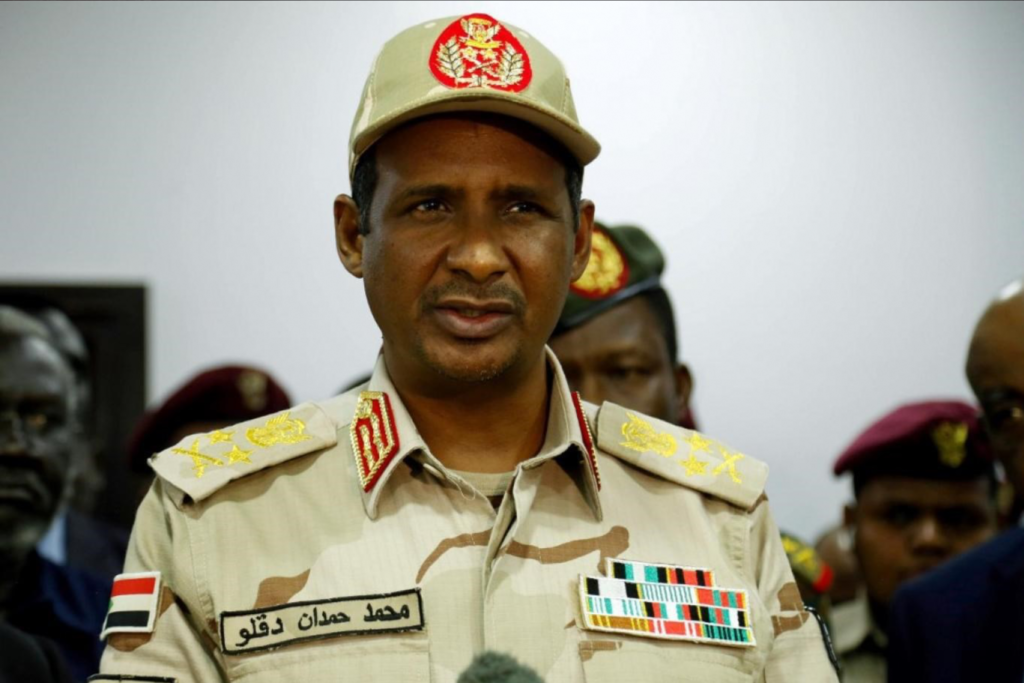
It would be much more desirable to “humble” the way to active Prime Minister, at least in this critical moment in Ethiopia. Once that passes, a more subservient civilian government could be reinstated. The problem is that Ḥamdūk is not about to give any concessions. But forming the new government is a matter of stiff competition between the two armed faction, which can trigger yet another coup at any given turning point. Daqalū is not strong enough to act alone, but with the streets still in chaos, with sufficient backing he could make a move on al-Burhān, triumphing as the “savior of the civilian government” forming one to his own likings. That is why al-Burhān is cautions. Because the coup on September showed the the army is still much divided.
Is the Abraham Accords in danger?
Also from the beginning the question was raised that the coup would mean the end of Sudan’s participation in the normalization. It would be a temping idea to imply that the coup was in some level against the highly unpopular deal with Israel, which Ḥamdūk opposed, but even al-Burhān reluctantly forced through. We could see that the main reasons are not exactly here, though there are parties which suggest that the normalization is a crucial matter.
Once again the context gives a different picture. Once Sudan signed the Abraham Accords funds and sanction lifts were promised, which largely never materialized. There were talks about Sudanese-Israeli military and agricultural cooperation, but still there is very little tangible result on these. Israel has already got the best out the deal. A major moral victory, and free passage over Sudan’s airspace. Also Sudan stopped supporting the support efforts for Palestine. There were also talks about embassies opening both ways, but that was soon put or a hold, as the Sudanese government never actually ratified the normalization agreement. That is the only thing that is postponed here. And we can clearly see that since the coup Tel Aviv raised very little concern about it, not fearing the result at all. With a new government firmly in place the exact results of the deal might change, but counting on American objections Khartoum will not dare for a long time to fully backtrack on the Abraham Accords. And that is quite enough for Tel-Aviv now, as even the gains with the Emirates and Morocco are not yet fully exploited. Compared to these considerations the Sudan bares little significance.
Overall it is hard to see which way the Sudanese Army will move forward from its deadlock. But it is surely an interesting contest, which truly has significance for the whole region.

